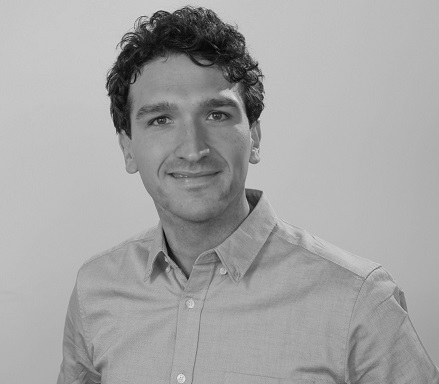“I want my research to matter”

He is passionate about sustainable development. Francesco Fuso Nerini’s motive to make his work known to others is simple: to make a difference. ”As researchers we have a duty to produce quality research that improves people's lives and the environment”, he says.
Francesco Fuso Nerini works as Associate Professor at the division of Energy Systems Analysis. In his research he makes energy and climate analyses and tries to figure out how future energy choices, climate change and AI will affect the achievement of the Sustainable Development Goals. He puts a lot of effort in spreading his research – in order to make it matter.
”After spending a long time on working and producing research, it would be a shame for it to end ´on the shelf´ without any real impact. I believe that as researchers we have a duty to produce quality research that improves people´s lives and the environment. And the only way for that to happen is that the research is of topical importance, and for it to reach the right audiences to have an impact”, Francesco says.
Do you have a clear strategy for spreading your research results?
”Once the research is out, reaching the right audiences is key. There are many ways to do that. For publications in top journals, researchers could work prior publication with their institutions´ press officers for a press release and an outreach strategy. Ideally, that could also result in coverage from national and international news media. Then, all authors could work to disseminate the results within their networks. Targeted, easy to understand outreach sharing key results in Twitter, LinkedIn, and other media is very useful for it. Also, research could be disseminated through other channels, such as blogs and popular science articles. For instance, Nature has recently given the opportunity to create popular science ´behind the paper´* pieces to increase the reach of research. Finally, presenting the results in topical conferences and meetings is very useful to reach the academic community and possibly open the way to new collaborations.”
What do think are the are the key factors to get a high Altmetrics score?
”There are many factors to it. The first one is producing high-quality collaborative research that addresses important problems. A multidisciplinary research team, including authors from academia but also from national and international organizations and industry can help improving the research relevance and applicability.”
“The second is trying to publishing in journals with high visibility in the field of research – which provide a good trampoline to disseminate the results. Then… disseminate, disseminate and disseminate!”
Do you see any trends or changes in how you work on your scientific impact?
”The covid-19 crisis has seen an explosion of online content and webinars. Also, online participation to conferences makes it much easier to join more events with less time spent on travelling. I expect this trend to somehow continue, thus giving the opportunity to present and disseminate research in more fora but with much less travelling.”
Text: Anna Gullers